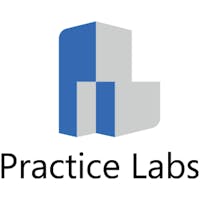Steph YoungGonzaga credits online learning with enriching her education and helping establish herself as an IT thought leader. Now she wants to pay it forward.
After earning both a Masters and a Doctorate online, and following a successful twenty-year career as a corporate IT executive, YoungGonzaga recently returned to her roots. She pivoted her career in order to focus on supporting students who, just as she did, are pursuing their education online.
As Assistant Professor and Program Chair at the Forbes School of Business and Technology at Ashford University—a fully online university—she developed the new Master of Information Systems Management degree program. Today, she’s focused on giving students the hands-on experience and peer connections they need to become the the next wave of IT leaders.
A key part of her arsenal? Virtual labs.
We asked YoungGonzaga to share her thoughts on the benefits of online learning, how virtual labs help develop the skills today’s IT leaders need, and why she feels compelled to give back to the technology community.
EdSurge: Tell us about your experiences earning a degree online? What were the benefits and challenges?
Steph YoungGonzaga: [Laughing] Oh, yes! I took both my master's and my doctorate online and I took my bachelor's on-ground. So I have a pretty good idea of the differences and the benefits between each of those.
Online was the most beneficial because it fit my lifestyle. It gave me the ability to ask the questions that I wanted answers to, and get actual answers back from either my instructors or my peers in the classroom. I could ask those questions that I wasn't able to ask in an on-ground environment. I also made connections with people all over the world who had experiences that I was interested in learning more about and I still reach out to them on occasion.
In an online environment the challenge is you must be self-driven. If you aren't self-driven, nobody is going to take your hand and say, ‘Okay. Now you’ve got to complete this, and you've got to do that.’ It's strictly you—and you have to be self-motivated.
What’s unique about the program you developed at Ashford?
When I joined Ashford University, I was asked to create a master's program in managing information systems. The program is focused on students who are mid-career IT folks looking to take the next step in their career, whether that's the manager of IT, a director of IT, the vice-president of IT, a senior vice-president, CIO—those kinds of things.
I realized we needed a hands-on component to the program in order to give students the education and the skillset they'd need to be a senior executive in IT. I thought a virtual lab environment was the best way to achieve that, but we didn't have virtual labs here at Ashford. It was then that I discovered the the virtual labs offered by Practice Labs.
Why virtual labs? Why not simulations or another approach?
Previously, when we've been teaching IT courses, we had students download the software and install it on their own PC and work with it there. As you can imagine, that was fraught with technical support issues. Students couldn't get the software. They couldn't download it. They couldn't install it. Or they were trying to install PC software on Macs. Our instructors were spending a lot of time being first-level tech support, and didn't have enough time to teach the material. So that didn’t work.
Simulations are great for showing what things look like in the dream environment. But as any technology person knows, especially those of us who've worked in IT for any amount of time, tech is never perfect.
Actual labs, in a virtual environment, where you're still working with equipment—that's the best because it gives you real-world experience. And it's much more realistic than any simulation could ever be. In a virtual lab environment students just log in to the lab and work in a safe environment. It has the proper software, the proper configuration, and the instructions they need to perform the exercises.
Instructors can focus on teaching–and not on technical issues.
Let’s take the example of learning about driving a car versus actually driving a car. To be a competent driver, there have to be two kinds of learning—conceptual and practical application.
Online learning, live lectures and material for the content in this program are similar to learning the details of how to drive. First there’s classroom learning about how driving the car works, including the rules of the road that will be on a driver’s test.
Then in virtual labs students apply learned concepts making them tangible. The hands-on experience reinforces the concepts and helps the student develop the skills necessary to competently drive a car. So, too, do virtual labs help reinforce the content learned in the program.
How do virtual labs benefit your students—and eventually their employers?
The biggest benefit is it gives you practice. It gives you a chance to touch and feel things, and to learn for yourself.
Java programming is a great example. You can't really learn a whole lot about Java if you are writing papers. You need to really work in a lab and program a Java program. That isn't as easy as it sounds. To get the experience you need, you have to work in an environment where you can make mistakes and not have to worry about crashing your PC because even if you have step-by-step instructions, you’re going to misunderstand or mistype things.
From a student's perspective and an employer's perspective, practice is the difference between what you think you know and demonstrating what you actually know. Without [virtual labs], it’s like reading about driving a car but never actually driving a car; it isn’t remotely the same.
Certifications are in high demand. Can virtual labs help students succeed in exams?
Our program isn’t certificate-oriented but looking at this from the student's perspective, virtual labs can help.
Along with standard banks of test questions on the material, certification exams very often have their own virtual lab components that students must configure and troubleshoot in order to pass the tests. Students learn by doing in a virtual environment and by having the actual hands on with the tools, they’ll have a greater chance of passing similar components in certification exams.
Are you happy with the results you’re seeing? Will you make any changes?
Definitely, students are getting the opportunity to experience technology that maybe they haven't had the chance to work with and that they could be responsible for managing in the next step of their career. And that provides them with the foundation to make sound decisions and to manage the technology well and understand what it can do for and within the business environment.
As for changes, we're tweaking things as we go along to make things better, but that's the nature of online learning—fix and improve things as you go.



